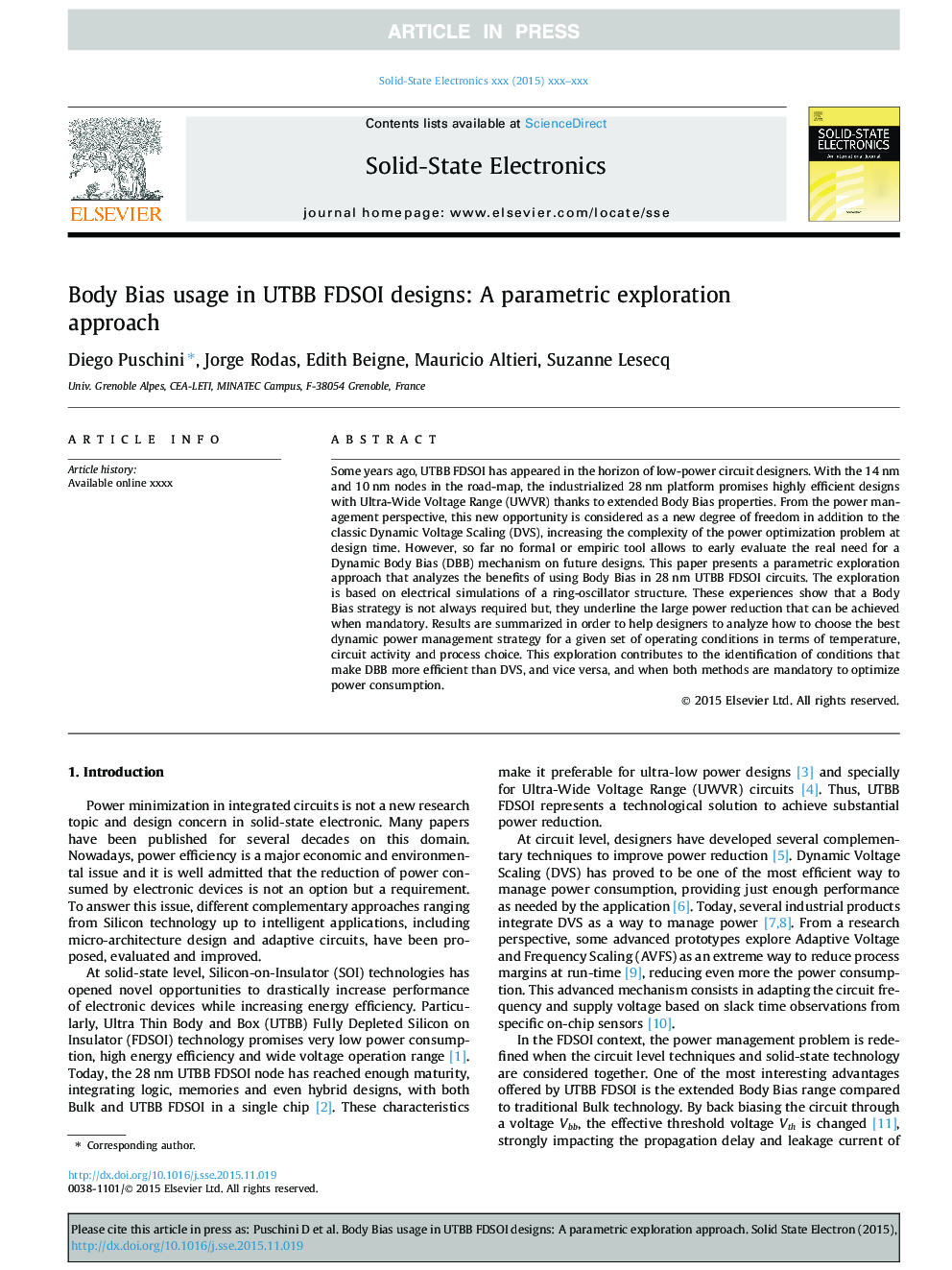| کد مقاله | کد نشریه | سال انتشار | مقاله انگلیسی | نسخه تمام متن |
|---|---|---|---|---|
| 7150811 | 1462216 | 2016 | 8 صفحه PDF | دانلود رایگان |
عنوان انگلیسی مقاله ISI
Body Bias usage in UTBB FDSOI designs: A parametric exploration approach
دانلود مقاله + سفارش ترجمه
دانلود مقاله ISI انگلیسی
رایگان برای ایرانیان
موضوعات مرتبط
مهندسی و علوم پایه
سایر رشته های مهندسی
مهندسی برق و الکترونیک
پیش نمایش صفحه اول مقاله

چکیده انگلیسی
Some years ago, UTBB FDSOI has appeared in the horizon of low-power circuit designers. With the 14Â nm and 10Â nm nodes in the road-map, the industrialized 28Â nm platform promises highly efficient designs with Ultra-Wide Voltage Range (UWVR) thanks to extended Body Bias properties. From the power management perspective, this new opportunity is considered as a new degree of freedom in addition to the classic Dynamic Voltage Scaling (DVS), increasing the complexity of the power optimization problem at design time. However, so far no formal or empiric tool allows to early evaluate the real need for a Dynamic Body Bias (DBB) mechanism on future designs. This paper presents a parametric exploration approach that analyzes the benefits of using Body Bias in 28Â nm UTBB FDSOI circuits. The exploration is based on electrical simulations of a ring-oscillator structure. These experiences show that a Body Bias strategy is not always required but, they underline the large power reduction that can be achieved when mandatory. Results are summarized in order to help designers to analyze how to choose the best dynamic power management strategy for a given set of operating conditions in terms of temperature, circuit activity and process choice. This exploration contributes to the identification of conditions that make DBB more efficient than DVS, and vice versa, and when both methods are mandatory to optimize power consumption.
ناشر
Database: Elsevier - ScienceDirect (ساینس دایرکت)
Journal: Solid-State Electronics - Volume 117, March 2016, Pages 138-145
Journal: Solid-State Electronics - Volume 117, March 2016, Pages 138-145
نویسندگان
Diego Puschini, Jorge Rodas, Edith Beigne, Mauricio Altieri, Suzanne Lesecq,